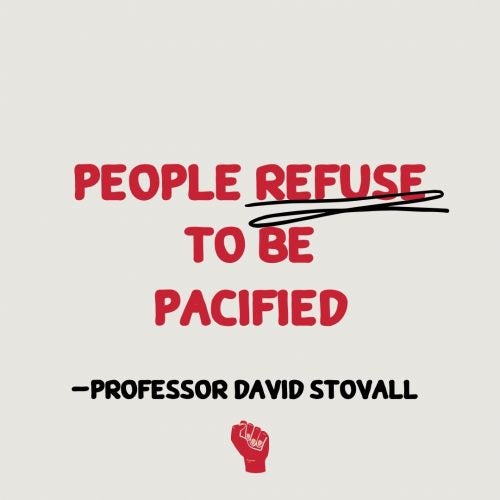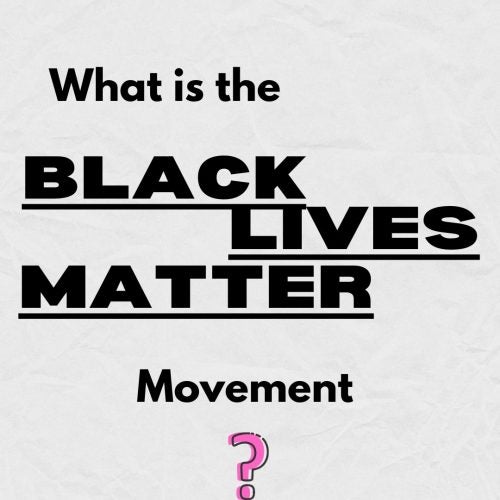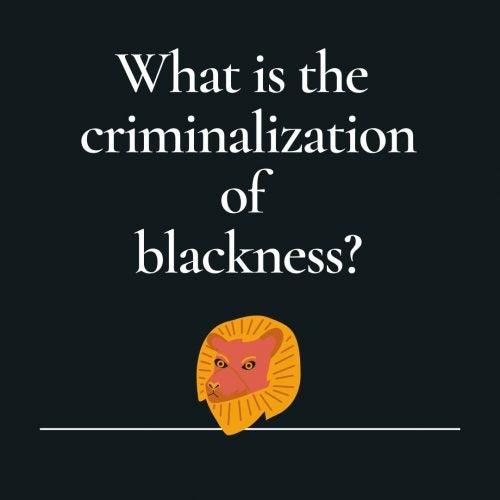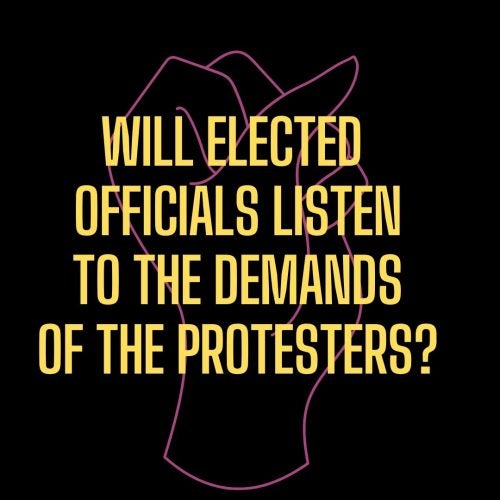Black Studies Solidarity Statement – 06/05/20
The Department of Black Studies at UIC is devastated by the death of George Floyd in Minneapolis, Breonna Taylor, Tony McDade, and Ahmaud Abrery. In the words of David Stovall, Professor of Black Studies and Criminology, Law and Justice, It is clear that Black people and all people experiencing oppression have had enough. Enough of living our lives in perpetually precarious situations. Enough of having to justify our existence in a land founded on genocide, slavery and wrongful land appropriation. As the faculty of Black Studies, we stand with people who are responding to the current moment of police terror. Given the fact that our department was founded as an extension of the community of Black people fighting for collective justice, we stand in solidarity with our comrades who are responding in the streets of Chicago, the nation and globally. The current publicized deaths of George Floyd, Breonna Taylor and Ahmaud Arbery are reflective of the collective terror inflicted on Black people since their arrival on the shores of the Western Hemisphere in the 16th century as chattel property. African-descended people have always resisted. Today, they are saying ‘enough.'
We are scholars, activists, and students all united around the common goal of interrogating, understanding and dismantling racism, sexism, inequality and injustice in all its forms. We support the world-wide protest movement his death has launched, as we are reminded that Mr. Floyd is one more of the hundreds of thousands of black people who have died simply because of who they are or how they are seen by others. The outbursts of rage and resistance that we see in cities across the U.S. reflects the compound damage of centuries of political, social, and economic discrimination. The people on the streets today are demanding to be heard after generations of being rendered voiceless. The COVID-19 pandemic is killing black people at a disproportionate rate. The resulting economic depression has furthered damaged black people’s fragile financial stability. We weep for the families who have lost loved ones and have suffered at the hands of state violence—many in local neighborhoods. From the 1919 Chicago riots to the Burge torture case and the death of Laquan McDonald, among many others, our city has a tragic and painful legacy of racial and government-sanctioned violence.
But we are proud of the myriad ways that Chicago-area activists—many of whom are our students and alumni—are pushing the deaths of black people into the public arena and demanding change. We encourage you to find a path that promotes social justice, whether it be through study, organizing, creative work, or private contemplation. Rev. Martin Luther King, Jr. in an address at Stanford University, April 1967, “But in the final analysis, a riot is the language of the unheard. And what is it that America has failed to hear? It has failed to hear that the plight of the Negro poor has worsened over the last few years. It has failed to hear that the promises of freedom and justice have not been met. And it has failed to hear that large segments of white society are more concerned about tranquility and the status quo than about justice, equality, and humanity.”
Dr. Jane Rhodes, Professor of Black Studies
Ways You Can Connect & Learn Heading link
Here is a curated list of Chicago and Minneapolis-based organizations to follow, connect with, and learn from.
Assata's Daughters
Assata’s Daughters organizes young Black people in the Black Radical Tradition. Based in Washington Park on Chicago’s South Side. Support their work.
Brave Space Alliance
Brave Space Alliance is the first Black and trans led LGBTQIA center located on the South Side of Chicago. Support their work.
CCBF
Chicago Community Bond Fund is a community bail fund practicing mutual aid and fighting to end money bail and pretrial incarceration. Support CCBF.
Chicago Freedom School
Chicago Freedom School supports young people in Chicago to take action in their personal lives and in their communities. Support their work.
IMAN
Inner-City Muslim Action Network (IMAN) is a community organization that fosters health, wellness and healing in the inner-city by organizing for social change, cultivating the arts and operating a holistic health center. Support their work.
Let Us Breathe Collective
Let Us Breathe Collective is an alliance of artists and activists organizing through a creative lens to imagine a world without prisons and police. Support their work.
FTP
For the People Artists Collective is a radical squad of Black artists and artists of color in Chicago. They’ve organized graphics which can be accessed here to uplift their communities.
Minnesota Freedom Fund
Minnesota Freedom Fund pays criminal bail and immigration bond for those who cannot afford to as we seek to end discriminatory, coercive, and oppressive jailing. Support the Minnesota Freedom Fund.
BLVC
Black Visions Collective (BLVC) is a Black-led, Queer and Trans centering organization in Minneapolis whose mission is to organize powerful, connected Black communities and dismantle systems of violence. We do this through building strategic campaigns, investing in Black leadership, and engaging in cultural and narrative organizing. Support BLVC.
Reclaim the Block
Reclaim the Block is a community coalition to demand that Minneapolis divest from policing and invest in long-term alternatives that promote healthier, safer, more diverse communities. Support their work.
M4BL
The Movement for Black Lives (M4BL) seeks to reach millions, mobilize hundreds of thousands, and organize tens of thousands, so that Black political power is a force able to influence national and local agendas in the direction of our shared Vision for Black Lives.
BLM
BLM’s #WhatMatters2020 is a campaign aimed to maximize the impact of the BLM movement by galvanizing BLM supporters and allies to the polls in the 2020 U.S Presidential Election to build collective power and ensure candidates are held accountable for the issues that systematically and disproportionately impact Black and under-served communities across the nation.
Ethel's Club
Ethel’s Club is a social and wellness club designed to celebrate people of color, online and IRL.
The Audre Lorde Project
The Audre Lorde Project is a Lesbian, Gay, Bisexual, Two Spirit, Trans and Gender Non-Conforming People of Color community organizing center, focusing on the New York City area.
BAJI
Black Alliance for Just Immigration educates and engages African American and black immigrant communities to organize and advocate for racial, social and economic justice. Local BAJI Organizing Committees in New York, Georgia, California and Arizona build coalitions and initiate campaigns among communities to push for racial justice. At the local and regional level, BAJI provides training and technical assistance to partner organizations to develop leadership skills, works with faith communities to harness their prophetic voice, and initiates vibrant dialogues with African Americans and black immigrants to discover more about race, our diverse identities, racism, migration and globalization.
BAP
The Black Alliance for Peace (BAP) seeks to recapture and redevelop the historic anti-war, anti-imperialist, and pro-peace positions of the radical black movement. Through educational activities, organizing and movement support, organizations and individuals in the Alliance will work to oppose both militarized domestic state repression, and the policies of de-stabilization, subversion and the permanent war agenda of the U.S. state globally.
BLVC
Black Visions Collective (BLVC) believes in a future where all Black people have autonomy, safety, and we are in right relationship with our ecosystems.
Black Workers for Justice
The BWFJ is an organization of Black workers formed in December of 1982 out of a struggle led by Black women workers at a K-mart store in Rocky Mount, North Carolina against race and gender discrimination. After organizing a boycott of the local K-mart store and reaching out to workers at other workplaces and communities, Black workers and community activists from 10 counties met at the First Missionary Baptist Church in Fremont, NC in December 1982 to form BWFJ as a statewide organization.
BYP100
BYP100 (Black Youth Project 100) is a member-based organization of black youth activists creating justice and freedom for all black people.
BOLD
BOLD (Black Organizing for Leadership and Dignity) is a national training intermediary focused on transforming the practice of Black organizers in the US to increase their alignment, impact and sustainability to win progressive change. BOLD carries out its mission through training programs, coaching and technical assistance for BOLD alumni and partners.
CBTU
CBTU is the fiercely independent voice of black workers within the trade union movement, challenging organized labor to be more relevant to the needs and aspirations of Black and poor workers.
NBFJA
National Black Food and Justice Alliance (NBFJA) organizes for black food and land, by increasing the visibility of visionary Black leadership, advancing Black people’s struggle for just and sustainable communities, and building power in our food systems and land stewardship.
Nat Council for Black Lawyers
The National Conference of Black Lawyers (NCBL) is an American association, formed in 1968, to offer legal assistance to black civil rights activists. NCBL is made up of judges, law students, lawyers, legal activists, legal workers, and scholars.
NAACP
The mission of the National Association for the Advancement of Colored People (NAACP) is to secure the political, educational, social, and economic equality of rights in order to eliminate race-based discrimination and ensure the health and well-being of all persons.
Scholars for Social Justice
Scholars for Social Justice (SSJ) is a new formation of progressive scholars committed to promoting and fighting for a political agenda that insists on justice for all, especially those most vulnerable.
ASALH
The mission of the Association for the Study of African American Life and History (ASALH®) is to promote, research, preserve, interpret and disseminate information about Black life, history and culture to the global community.
Civil Rights Movement Archive
The Civil Rights Movement Archive is an important repository of up from below and inside-out history as seen and interpreted by the participants whose boots were on the ground.
SNCC
The Student Nonviolent Coordinating Committee (SNCC) Legacy Project (SLP) was begun to preserve and extend SNCC’s legacy.
Reclaim the Block
Reclaim the Block began in 2018 and organizes Minneapolis community and city council members to move money from the police department into other areas of the city’s budget that truly promote community health and safety.
Click Here For Downloadable PDF of Resources
Black Studies Writings & Readings Heading link
Auditory Resources Heading link
-
A List of various Podcasts you can listen to
BLST Faculty Weigh in on the Intersections of Covid-19, Police Violence & Protests Heading link



